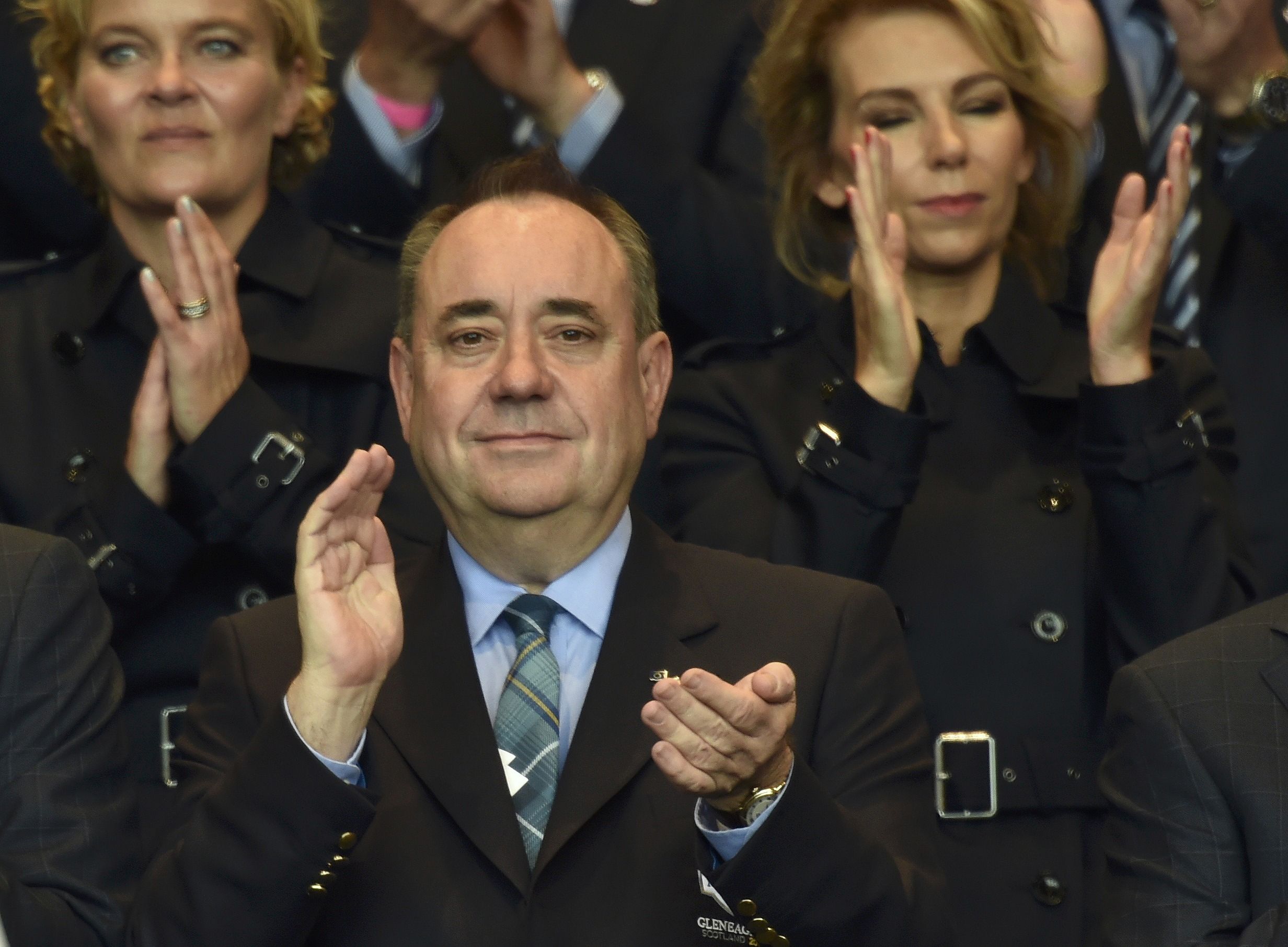
LONDON (Reuters) - Less than a month after Scots spurned independence, separatists said on Tuesday that British Prime Minister David Cameron was betraying Scotland by reneging on pledges to grant more spending powers to the Scottish parliament.
In a last-ditch attempt to shore up support for the union days before the Sept. 18 referendum that threatened to break apart the United Kingdom, Britain's three main political parties promised to give more powers to Scotland.
Since then, Britain's London-based politicians have bickered over what amounts to a full-scale overhaul of the way the United Kingdom is ruled, though party leaders insist they will grant the promised powers to Scots.
"People have no confidence in Tory guarantees and they are absolutely fizzing about what looks like a preparation for a betrayal of solemn commitment made," Scottish nationalist leader Alex Salmond said, refering to Cameron's Conservative party.
Salmond, who is due to step down as nationalist leader next month, said Scots angered at what he termed an attempt to trick them would exact revenge on the main parties in the 2015 parliamentary election.
After the 55-45 percent vote for staying in the union, Cameron said the issue of Scottish independence had been settled for a generation and promised more powers for Scotland as part of a rebalancing of powers across the rest of the United Kingdom.
Nationalists say they feel the question is far from settled, especially if they fail to get the autonomy Scotland has been promised or if British voters choose to leave the European Union in a 2017 referendum on membership that Cameron has said he will call if re-elected in 2015.
THE VOW
During the campaign, Cameron, Labour party leader Ed Miliband and Liberal Democrat party leader Nick Clegg promised to guarantee Scotland high levels of state funding and grant Scots greater control over health care spending.
"It is an unconditional vow," William Hague, a former Conservative leader, told parliament during a debate on devolution following the referendum.
"So I think the Scottish nationalists should stop trying to pretend that people are reneging when they are not."
The British government insists that the process to pass power to Scots is running ahead of schedule.
A 46-page government analysis of party pledges relating to devolution has been published and legislation is due to be drafted by the time Scots celebrate the birthday of their most revered poet, Robert Burns, on Jan. 25.
The legislation would only be passed after the 2015 election. If Scots had voted to break away, a declaration of independence would have taken place on March 24, 2016.
Former Labour Prime Minister Gordon Brown, a Scot who is credited with saving the union by imploring voters to stay in the United Kingdom, has proposed giving the Scottish parliament powers to raise 54 percent of its own revenue, rising to 18 billion pounds ($28.67 billion) in 2016 from 4 billion pounds today.
RECASTING THE UK
The Conservative party proposes to devolve setting income tax rates and bands to the Scottish parliament. Scotland will be given the power to issue its own bonds from April 2015, according to plans announced in February.
Behind the minutiae of the debate on autonomy, Britain's leaders are grappling with the task of recasting the United Kingdom of Great Britain and Northern Ireland, a sovereign state fashioned over centuries by warriors, kings and traders.
Though the Scottish vote preserved the United Kingdom, the last-minute pledges to Scots angered some English lawmakers who say England, Wales and Northern Ireland need a fair settlement too.
Those lawmakers say it is unfair for Scottish lawmakers in the national parliament in London to have a say over decisions that affect voters in England while members of parliament, including Scottish ones, have no say over certain decisions made by the increasingly powerful Scottish parliament in Edinburgh.
Opponents said Cameron's pledge to forge a constitutional settlement for Scotland in tandem with one for the other parts of the United Kingdom was an attempt to counter growing support for the anti-EU UK Independence Party (UKIP).
Labour's shadow Lord Chancellor said Cameron's pledge was "a short-term partisan fix that had more to do with fighting the United Kingdom Independence Party than what was in the best interests of the United Kingdom."
The opposition Labour party has signaled it will not take part in cross-party talks on the English votes for English laws question, a step that could complicate the process of granting further powers to Scotland.
At a debate on devolution, Scottish nationalists questioned why Cameron had not led such an important debate about the future of the country. "Where is the prime minister?" Scottish National Party lawmaker Angus Robertson asked.
Uncommon Knowledge
Newsweek is committed to challenging conventional wisdom and finding connections in the search for common ground.
Newsweek is committed to challenging conventional wisdom and finding connections in the search for common ground.
About the writer
To read how Newsweek uses AI as a newsroom tool, Click here.








